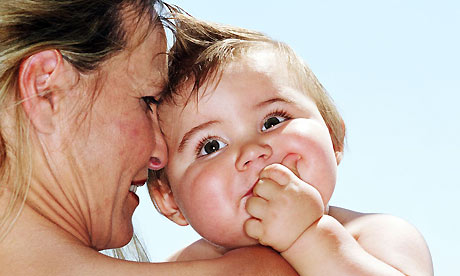
Women undergoing fertility treatment are far more likely to successfully give birth if they also have acupuncture, a major scientific study has concluded.
The research found that women suffering with fertility problems who underwent the ancient Chinese treatment increased their chance of having a baby from one in five to one in three. Acupuncture involves inserting extremely fine needles into specific points on the body, along qi energy channels, to stimulate the body's own healing system.
The finding will offer hope to the 33,000 women a year who undertake IVF treatment, many of whom are willing to make any change to their lifestyle or health routine that might increase their chances of becoming a mother.
Researchers led by Ying Cheong, from the reproductive medicine unit at the University of Southampton and the city's Princess Anne hospital, concluded that 'acupuncture around the time of embryo transfer achieves a higher live birth rate of 35 per cent compared with 22 per cent without active acupuncture'. Embryo transfer is when an embryo that has been fertilised in the laboratory is implanted into a woman's womb. The research found that the chance of the embryo implanting successfully, resulting in pregnancy, increased significantly if a woman underwent acupuncture around the same time as the transfer.
'Our research is good news because it shows that acupuncture can help with fertility in patients undergoing IVF. Whether or not acupuncture helps women achieve a live birth is a controversial issue, and opinion has been divided on it,' said Cheong. 'We show that acupuncture, performed at the right stage, can have significant benefit. A woman who does so has a much greater chance of having a live birth than a woman who doesn't have acupuncture.'
However, there is no benefit if the treatment takes place in the days after the embryo transfer, according to Cheong and his colleagues, who include Professor Bill Ledger, a leading fertility expert and a member of the Human Fertilisation and Embryology Authority. They looked at 13 studies carried out worldwide, involving more than 2,000 patients who underwent acupuncture during a course of IVF.
Their study is due to be published on the Cochrane Library's online database of systematic reviews. The library is part of the Cochrane Collaboration, an independent, international organisation whose experts' scrutiny of the effectiveness of medical procedures is respected by doctors worldwide.
Patient representatives welcomed the research. Susan Seenan, of Infertility Network UK, a charity that campaigns for people with fertility problems, said: 'These results appear to show that acupuncture given with embryo transfers can help improve success rates and we look forward to further research in this area to confirm this. Anything that helps improve the success rates for people going through infertility treatment is good news.
'Many of our members report that alternative therapies, such as acupuncture, can help them to cope with the treatment and the general stress .
Some fertility clinics, including the private Lister Hospital in London, are already responding to keen interest in complementary therapies by recommending that patients visit alternative practitioners.
Marie Wren, deputy medical director of the Lister's IVF unit, said many patients have already decided to have acupuncture when they arrive. 'They find the whole process of complementary therapy alleviates their stress.'

